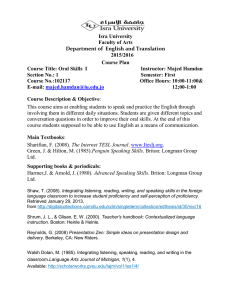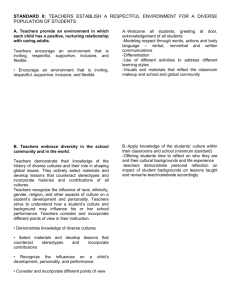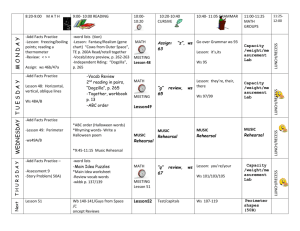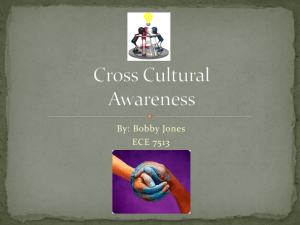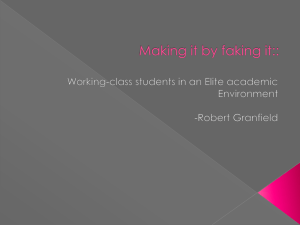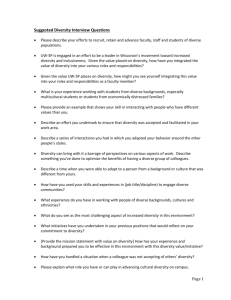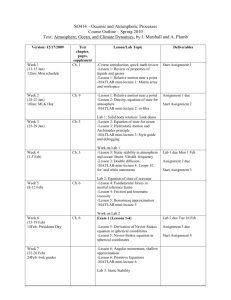Multicultural Lesson Plan Rubric | Diversity & Inclusion
advertisement
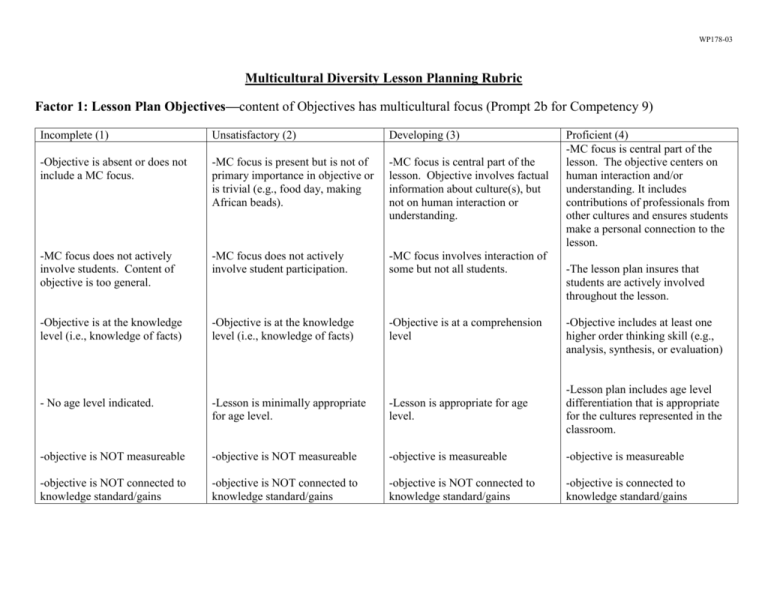
WP178-03 Multicultural Diversity Lesson Planning Rubric Factor 1: Lesson Plan Objectives—content of Objectives has multicultural focus (Prompt 2b for Competency 9) Incomplete (1) Unsatisfactory (2) Developing (3) Proficient (4) -MC focus is central part of the lesson. The objective centers on human interaction and/or understanding. It includes contributions of professionals from other cultures and ensures students make a personal connection to the lesson. -Objective is absent or does not include a MC focus. -MC focus is present but is not of primary importance in objective or is trivial (e.g., food day, making African beads). -MC focus is central part of the lesson. Objective involves factual information about culture(s), but not on human interaction or understanding. -MC focus does not actively involve students. Content of objective is too general. -MC focus does not actively involve student participation. -MC focus involves interaction of some but not all students. -Objective is at the knowledge level (i.e., knowledge of facts) -Objective is at the knowledge level (i.e., knowledge of facts) -Objective is at a comprehension level - No age level indicated. -Lesson is minimally appropriate for age level. -Lesson is appropriate for age level. -Lesson plan includes age level differentiation that is appropriate for the cultures represented in the classroom. -objective is NOT measureable -objective is NOT measureable -objective is measureable -objective is measureable -objective is NOT connected to knowledge standard/gains -objective is NOT connected to knowledge standard/gains -objective is NOT connected to knowledge standard/gains -objective is connected to knowledge standard/gains -The lesson plan insures that students are actively involved throughout the lesson. -Objective includes at least one higher order thinking skill (e.g., analysis, synthesis, or evaluation) WP178-03 Factor 2: Lesson Plan Mechanics—Multicultural objectives are supported by lesson plan activities and matched to assessments (i.e., Multicultural Diversity Objective—Lesson Plan—Assessment link) Incomplete (1) -Lesson plan is incomplete (i.e., is missing one of the following): Objective Content Procedure Evaluation/Assessment Check for Understanding Unsatisfactory (2) Developing (3) Proficient (4) ASSESSMENT -No match between objectives, activities and assessment. ASSESSMENT -Assessment matches some but not all lesson objectives ASSESSMENT -Clear match between objectives, activities and assessment. -Assessment is too brief or doesn’t measure the objective Assessment measures facts and literal comprehension -Assessment involves MC/Diversity with comprehensive assessment. -Assessment measures content facts/figures. -Assessment is a measure of facts and literal comprehension. -Assessment measures knowledge, comprehension and higher order thinking skills. -Assessment uses one method of student response—although everyone is assessed, they must respond in the same way. (i.e. students will write answers to essay questions) -Assessment is tailored to accommodate students’ language skills (i.e. shorter sentences, simplified vocabulary, reading assessment to student to assure understanding of questions, etc.) -When checking for understanding, not all students are required to respond LESSON PLAN LESSON PLAN -lesson activities minimally support objective -lesson content is derived primarily from anecdotal evidence/personal opinions/stereotypes -lesson activities partially support objective LESSON PLAN -lesson activities support objective -lesson content is derived partially from anecdotal evidence/personal opinions/stereotypes -lesson content is from appropriate information sources and those are cited -lesson content is presented in more than one way, using multiple modalities -lesson content is presented in one manner (i.e., students will watch a video, students will read a story) -lesson content is presented in more than one way, using multiple modalities WP178-03 Factor 3: Personal Commitment to Understanding Cultural Diversity through Lesson Planning Incomplete (1) Unsatisfactory (2) Developing (3) Proficient (4) -No personal reflection on bias/beliefs about teaching students from other cultures -Personal reflection includes indifference or lack of concern for cultural diversity. -Reflects recognition of and general acceptance of various cultures. -Reflects respect and affirmation of individual cultural differences. -Some reflection on personal bias/beliefs about teaching students from other cultures. -Thorough reflection on personal bias/beliefs about teaching students from other cultures -No reflection of knowledge -Reflects on one example of gained about teaching students knowledge gained about teaching from various cultural backgrounds students from various cultural backgrounds -Includes no reflection of generalization beyond the -Includes no reflection of classroom of knowledge and skills generalization of knowledge and gained skills beyond the classroom -No discussion of strategies used to promote acceptance and respect of people from all cultures. -Discusses 1 strategy you will incorporate into your teaching to promote acceptance and respect of people from all cultures. -Reflects on two examples of knowledge gained about teaching students from various cultural backgrounds -Reflection shows minimal generalization of knowledge and skills outside the classroom. -Discusses 2 strategies you will incorporate into your teaching to promote acceptance and respect of people from all cultures. -Reflects on three or more examples of knowledge gained about teaching students from various cultural backgrounds -Reflects about how new knowledge and skills about multicultural teaching generalizes beyond the classroom. -Discusses 3 strategies you will incorporate into your teaching to promote acceptance and respect of people from all cultures. WP178-03 Factor 4: Lesson Plan Inclusiveness—what makes this an example of an inclusive teaching strategy for a diverse classroom? (Competency 9, 2.d.) Given your lesson plan and content, what adaptations did or would you provide for diverse populations in this classroom ? (Competency 9, 2.e.) Incomplete (1) Unsatisfactory (2) Developing (3) Proficient (4) -No mention of adaptations to differentiate for students from various cultural backgrounds -One adaptation is clearly written to differentiate for students from various cultural backgrounds -Two adaptations are clearly written to differentiate for students from various cultural backgrounds -More than two adaptations are written to differentiate for students from various cultural backgrounds -Adaptations are unreasonable or inappropriate. Adaptations are reasonable and appropriate but not all aspects from Proficient Level are included Adaptations indicate: Age appropriate strategies are used Choices are given to students to meet their learning preferences and needs Strategies with demonstrated effectiveness are used
